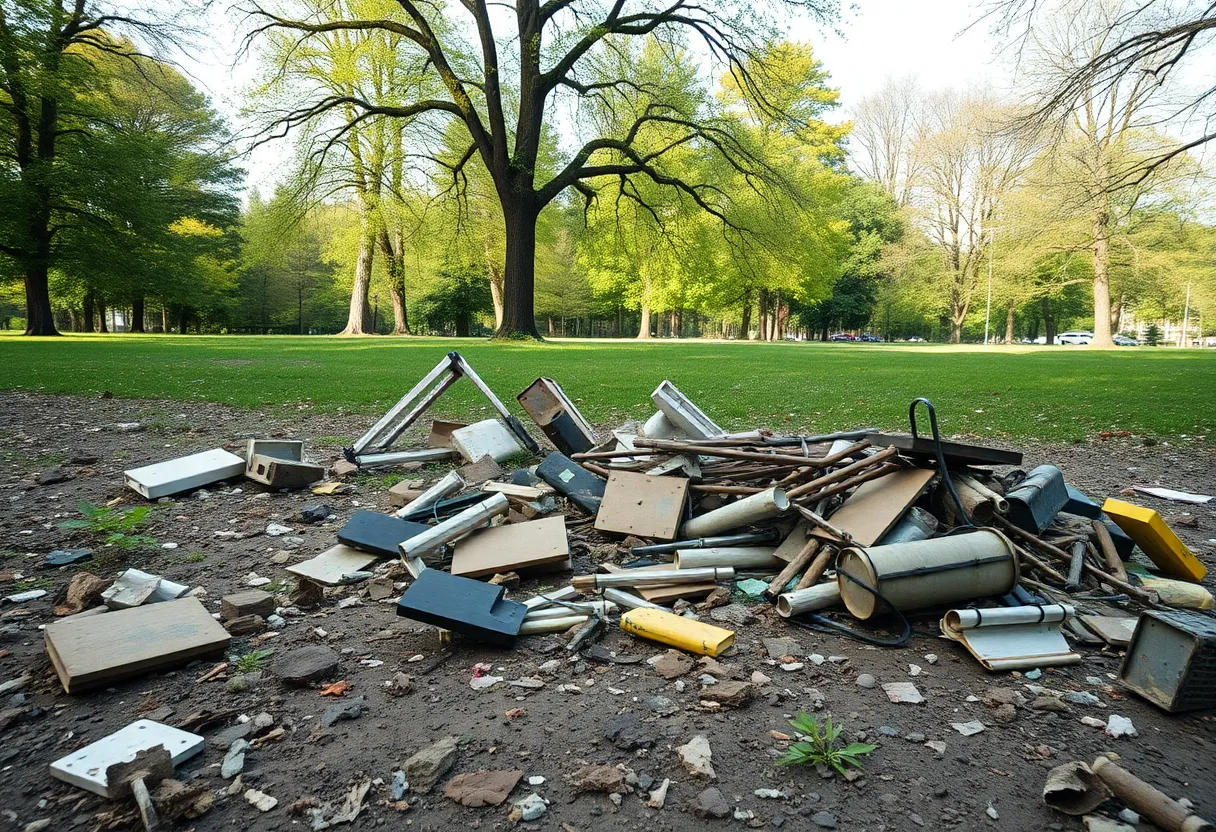News Summary
Swindon residents reacted with anger after discovering asbestos-covered fly-tipping in Stanton Country Park. The hazardous waste, found early on August 18, poses significant health risks to the community and wildlife, sparking calls for improved park security and environmental accountability. The financial burden of asbestos removal adds to community frustrations, leading to increased pressure on local authorities to address this alarming issue.
Outrage Erupts Over Asbestos-Covered Fly-Tipping in Swindon Park
Swindon residents are *fuming* after discovering a shocking amount of asbestos-covered fly-tipping in Stanton Country Park. The disturbing find occurred early on a Monday morning (August 18), when a local resident stumbled upon the hazardous waste that included not only building materials but also a stuffed animal among the rubble. As photos of the alarming scene made their rounds on social media, it became clear that this wasn’t just a case of littering—it was a reckless act that put the community at risk.
Community Outcry
Online reactions quickly flooded in, displaying an overwhelming sense of *frustration* and *disappointment* among locals. Many questioned the sanity of those who would dump such dangerous materials in a park frequented by families, especially during the school holidays when children are everywhere. The deeply concerning act of fly-tipping like this is not only harmful to the environment but also threatens the health of residents and wildlife alike.
The Financial Burden
Residents were not just outraged by the unsightly mess but were also keenly aware of the high costs associated with asbestos disposal. The financial implications of cleaning up such hazardous waste can be staggering, leading some to speculate that the offenders might have opted for the illegal route to avoid these expenses. One local shared the burden they faced with asbestos removal, highlighting the stringent requirement for *double wrapping* materials to ensure safe disposal. This added emphasis on costs drove home just how serious the issue of fly-tipping is.
Lives at Risk
The health risks posed by fly-tipped materials, particularly those containing asbestos, cannot be overstated. Exposure can lead to *serious health issues*, including mesothelioma, a rare but deadly form of cancer, which has been linked to asbestos exposure. The notion that someone could willfully endanger children and families is utterly *unfathomable* to many in the community. Concerns about safety have reached new heights, and the need for action is now more pressing than ever.
Locking Up to Protect
After the shocking discovery, some residents began calling for a change, pointing out that the park gates have not been locked at night for several years. This troubling oversight has allowed for illegal activity to go unchecked, leaving the community to suffer the consequences. One local suggested that locking the gates could be a *simple yet effective* solution to prevent future fly-tipping incidents, allowing families to enjoy their local park without fear.
City Council’s Response
Swindon Borough Council has made it clear that fly-tipping is a criminal offense, heavily penalizing offenders. Small-scale illegal dumping can lead to a fixed penalty notice of £400, while larger incidents can result in *substantial fines* or even prosecution. Unfortunately, fly-tipping costs the council over £200,000 annually, a significant sum that could be better spent on various priority areas within the community.
In response to this alarming situation, the council has urged the public to report any observed fly-tipping incidents online, emphasizing the importance of safety and recommending that citizens not confront offenders directly. As the community grapples with this challenge, the hope remains for a safer, cleaner Stanton Country Park, free from the scourge of hazardous waste.
Public Participation is Key
As residents rally together, the situation highlights the need for community vigilance and accountability. With the public encouraged to actively report any signs of fly-tipping, there lies a collective responsibility to safeguard the environment and public health. Together, locals can work towards preventing such acts of recklessness and protecting their beloved parks for generations to come.



















